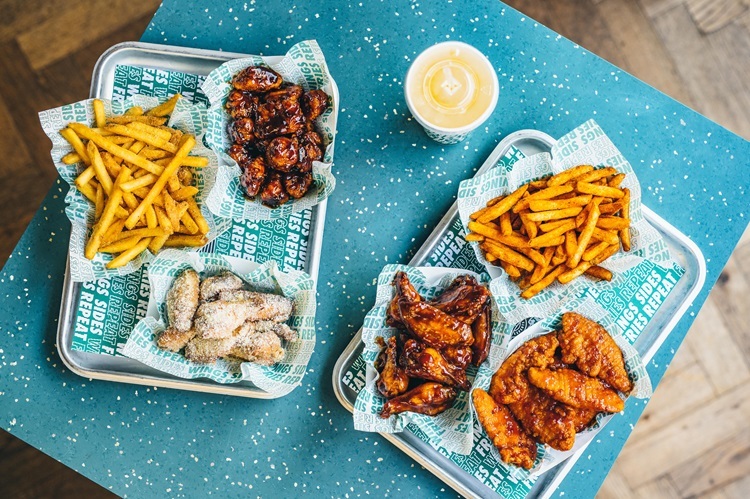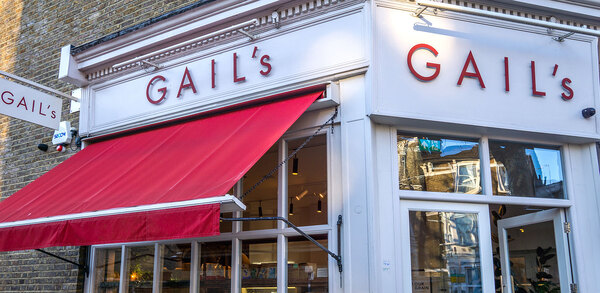How to... attract health-conscious diners
With many guests looking to change up their diet this month, Lucy Pedrick, senior insights manager at Bidfood, has some tips on how to make your healthy options appeal to a wider audience
With Veganuary in full swing and diners searching for eating out options that won’t pile on the pounds after the feasting of the festive season, restaurants need to work hard to sell the enjoyment that can be had from lighter options.
Bidfood has surveyed 2,000 diners to explore how the words used on menus impact consumer dining habits, working alongside psycholinguist Dr Sylvia Jaworska for expert insight.
While the research found Brits were turned off by overly complicated descriptions on menus, when it came to describing healthier dishes, one-third of Brits (38%) said they’d like to see eateries switch up how they describe healthy meals to encourage them towards more nutritious options.
Furthermore, the research found that for two-thirds (66%) of those surveyed, the description on the menu is more influential than the photos or nutritional value.
To better mirror consumer aspirations, here are some tips on positioning healthy options to maximise their appeal.
Five ways to promote your healthy options
1 Spice up your language
If you’re serving up something bursting with flavour, shout about it. Of the people we spoke to, 46% would opt for healthier dishes with more exciting flavours. Terms like rich, spicy, smoky, fresh and aromatic were the most appealing to diners when reading a menu and considering how those meals might taste.
We found that almost a quarter (23%) of people see meals described as “healthy” as boring, or at least not exciting, so by sprucing up the description, you could increase the appeal of healthier items on the menu. Ordering a healthier meal doesn’t equate to ordering a meal lacking in flavour, and by making this clear to diners, you’re going to maximise profit.
2 Tell diners where their food is coming from
Consumers are becoming more aware of the environmental impact their food makes on its journey to the plate and are adjusting their spending habits accordingly. This is evident in consumer trends such as the rise in plant-based eating, with vegan cuisine becoming the UK’s fastest-growing takeaway over the past couple of years.
When asked what words might guide meal choices, our findings highlighted an increased interest in searching for terms such as ‘locally sourced’ (37%), ‘seasonal’ (33%), ‘free range’ (30%) and ‘sustainably sourced’ (26%). If you’re bringing food to the table in an environmentally friendly way, consider including this information on the menu for the curious consumer.
3 Avoid complicated terminology
Customers were often annoyed with menu descriptions that don’t offer clear explanations of the dish when looking through a menu. Almost two-thirds (58%) admitted they regularly turn to Google for help when eating out, because they don’t understand what they could be ordering.
When it came to words like ‘quenelle’, ‘jus’ and ‘ballotine’, up to two-thirds of diners were baffled, with 40% thinking that jus was something to put in your hair.
The use of random French words like ‘haricots verts’ (green beans) was also highlighted as an annoying aspect of the menu. If these words aren’t widely known they’re going to alienate the diner. When you’re crafting your menu, ask yourself if the words being used have a real purpose.
4 Avoid calorific words and engage the senses
If you’re looking to attract health-conscious diners to healthy options on the menu, avoid using ‘indulgent’, ‘sweet’, ‘rich’, ‘oozing’ and ‘sticky’ – these are the words that diners highlighted as seeming the most calorific. These are descriptions with which people associate decadence and are going to avoid if they’re looking to be healthier.
Words like ‘succulent’ and ‘tender’, however, were highly sought after when it came to texture and aren’t associated with unhealthy options. Other descriptions highlighted for their appeal when it comes to preparation included ‘roasted’, ‘grilled’ and ‘marinated’.
5 Evaluating the impact
When combining this research with the trends towards healthy eating, it is clear there is a huge opportunity for operators to pull in diners through the way they describe the dishes on their menus. Dr Sylvia Jaworska says that the impact that simple word switches could have should not be underestimated, as words on a menu can have a much stronger influence on our perception of food than the experience of eating itself and are key to securing an edge over competitors.


















